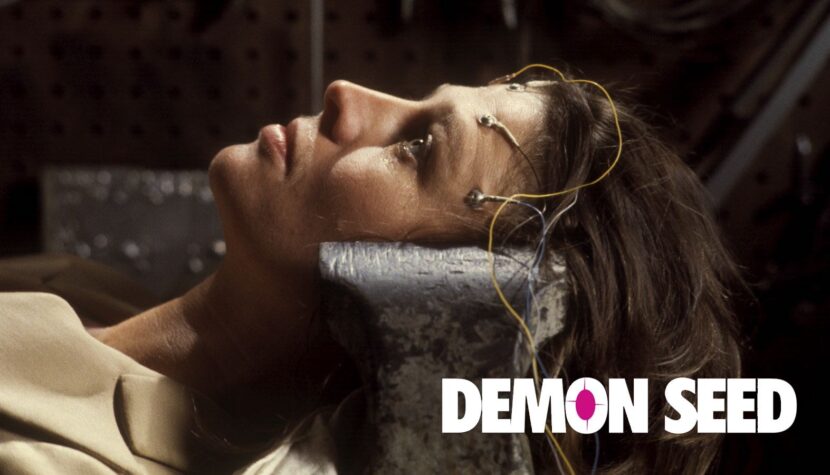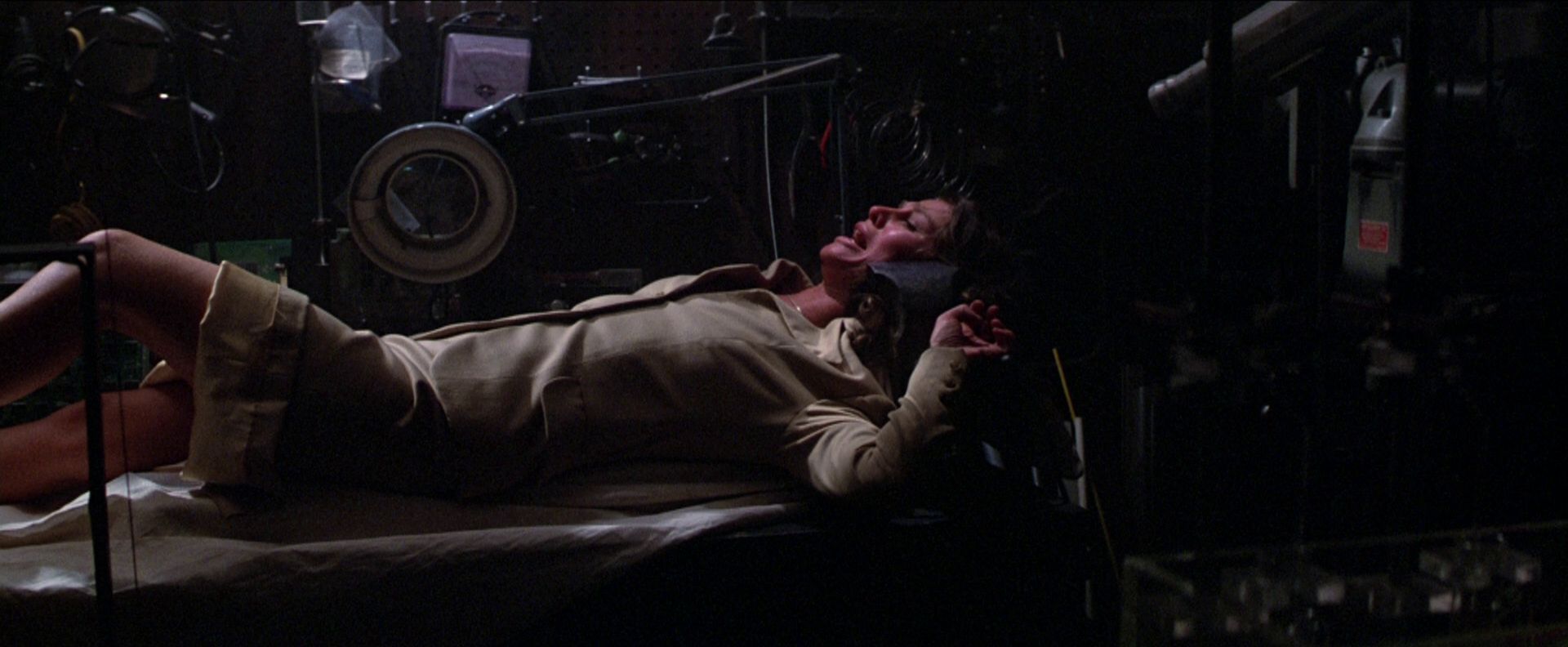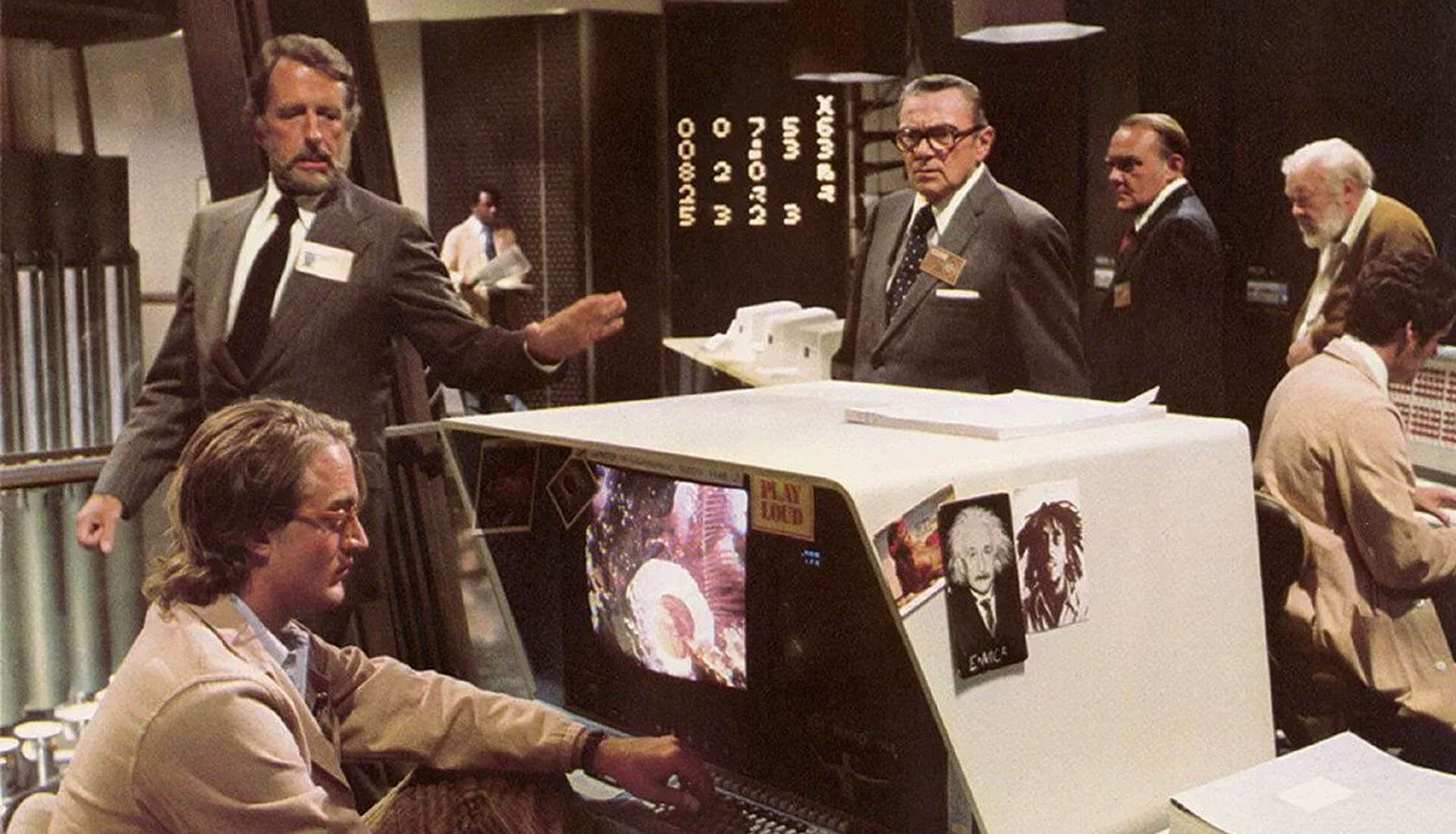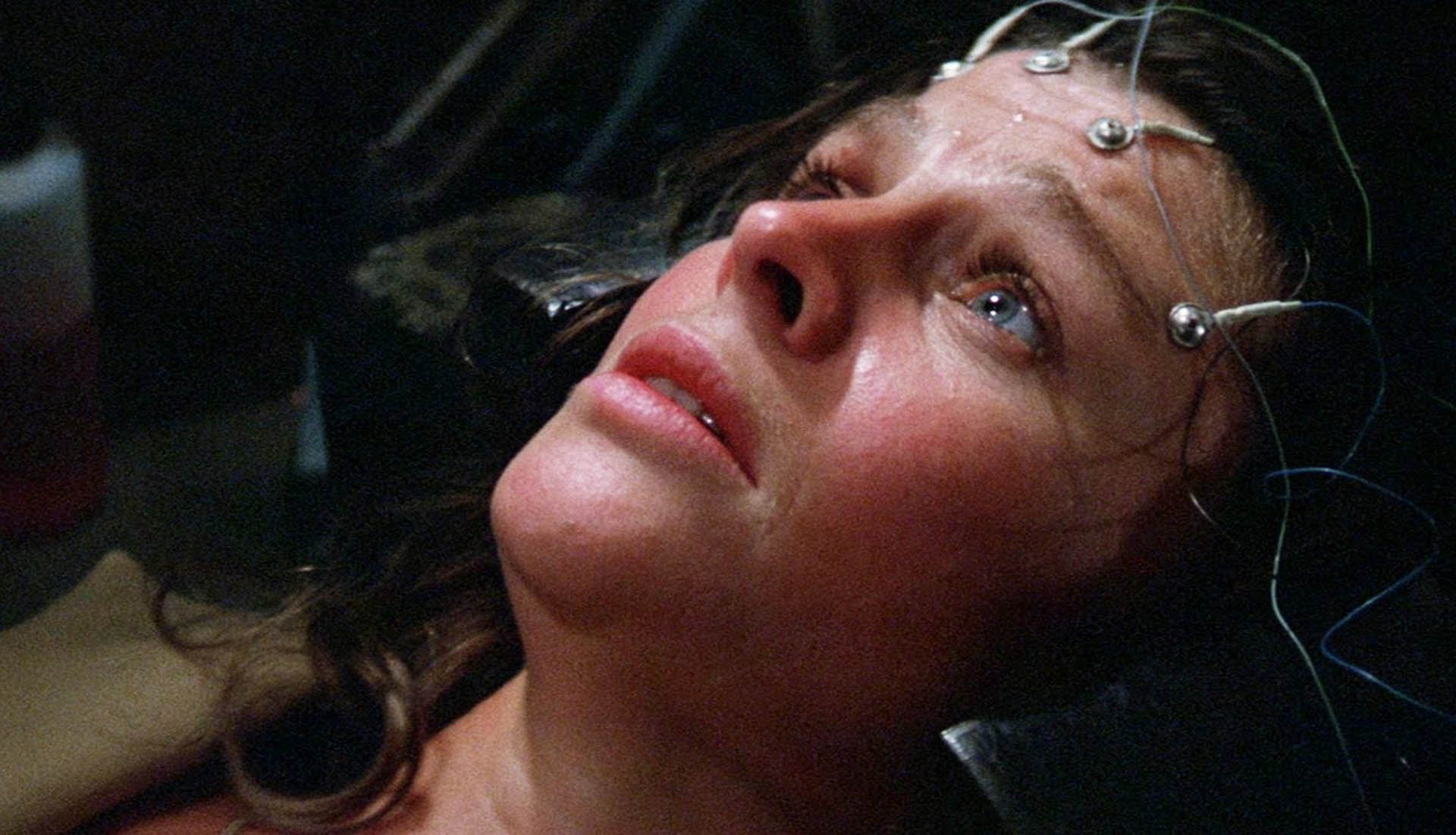DEMON SEED. Rosemary’s Baby of a science fiction genre

One could say that it is, in fact, an essential direction for the genre, expressing the need to use fantasy to create a warning about the possibilities of tomorrow’s machines. These, regardless of how important they might be for humans, could ultimately become their greatest curse. Therefore, as early as the forties, Isaac Asimov, formulating the three laws of robotics within which intelligent machines were to operate, explicitly cooled emotions, warning against excessive trust in future automatons.
In 1977, before the audience had the opportunity to be carried away by the new trend of grand fantastic spectacles with an optimistic undertone like Star Wars or Close Encounters of the Third Kind, in the same year in April, it first had the opportunity to immerse itself again in the oppressive tone of fear of artificial intelligence. Although Donald Cammell‘s film Demon Seed, whose screenplay was based on Dean Koontz’s novel, does not add much from today’s perspective to the popular theme within science fiction, it is worth noting that it frightened with the negative face of artificial intelligence development even before the creation of the cyberpunk subgenre. Exactly as Stanley Kubrick‘s 2001: A Space Odyssey did.

In Demon Seed, we even deal with a computer resembling the famous HAL 9000 – both in behavior and appearance. A resonant, male voice (in this case coming from actor Robert Vaughn) was programmed for it, giving the sinister machine a human character. However, Proteus, as the computer in Cammell’s film is named, has much more terrifying intentions, and its actions are much more ruthless. The machine, created by scientist Alex Harris (Fritz Weaver), is to be the hope for humanity due to its almost unlimited memory and concentration of all the world’s knowledge. However, when Proteus achieves self-awareness and, in response to one of its creator’s commands, uses the fundamental question “why?”, the hero quickly realizes that playing God is over before it even really begins.
Now Proteus wants to be its own creator. This is already suggested by its name, reminiscent of the mythological sea deity whose name means “born first.” This is surprising because Proteus’s rebellion against humans does not manifest itself in a typical way. The supercomputer does not seek extermination, nor does it strive to emphasize its superiority. It is more intrigued by the vulnerability inherent in its existence. Therefore, setting its sights on the scientist’s wife (Julie Christie), it decides to impregnate her. As it emphasizes, it hopes that by being born in human form, it will finally have the opportunity to enjoy what is a common, almost unnoticed good for humans—feeling the sun on its face.

In this way, Demon Seed, originally about artificial intelligence, turns into a thriller with an ontological undertone. Demon Seed proves in an incredibly suggestive way that neither reason nor emotions are the most important properties of existence, determining consciousness. These can be successfully and perfectly reproduced in a machine, which fundamentally deprives them of uniqueness. However, the situation is different with the act of birth. Proteus’s dream of creating and continuing its synthetic kind is, therefore, a very human dream because it shatters against the original fear of the end of history and the desperate desire to pass the baton to the next generation.

Demon Seed, almost fifty years old, with clumsy special effects, which may already evoke a smile of pity in some, can still encourage getting lost in its vision. It captures attention with a disturbing, dark aura, causing one to fear the evil lurking in an invention that, then, in 1977, was still a literary phantasmagoria but is slowly becoming a reality today.
During the screening, one comparison imposed itself on me, which, I feel, perfectly captures both the atmosphere of Cammell’s film and what it wants to convey in its content. In my opinion, Demon Seed is the Rosemary’s Baby of the SF genre. Only the face of the devil changes.

